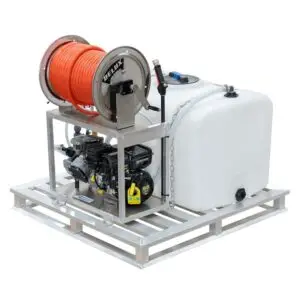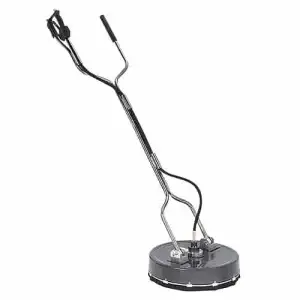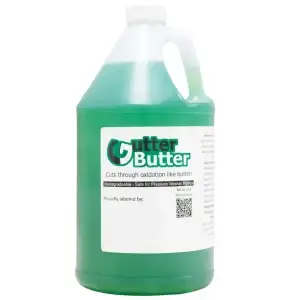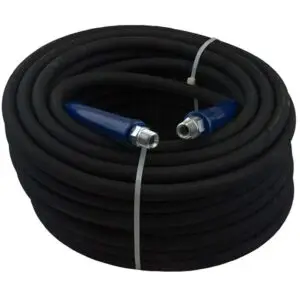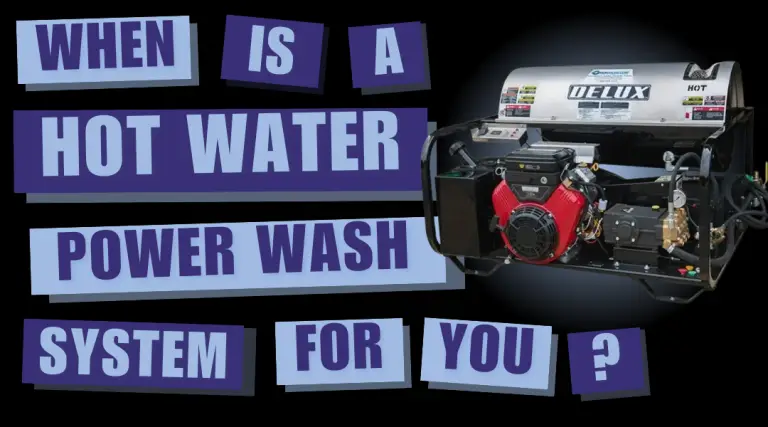- Home
- /
- PowerWash Industry
- /
- The Importance of Job Data Reports
Subscribe To Our Newsletter
Stay in the know on the latest products, deals, events, tips & tricks.
Social Media
Popular Products
-
All Pressure Washers
100 Gallon Tank Soft Wash Skid – Vanguard Engine, 11 gpm Pump, Aluminum Skid – Stallion Small Truck Batch
$6,629.97 -
-
-
The Importance of Job Data Reports
Tech Tips
The Importance of Job Data Reports
Bernard Besal
Besal Services, Inc.
In the years that I have been involved in exhaust system cleaning operations, I have always held that job related documents should be designed to serve two equally important functions. The first, of course, is to provide customers with important information concerning their systems. The second is to prevent the contractor from being blamed for conditions over which he/she had no control.
Since we all “learn something new everyday,” there always seems to be another overlooked category missing from my completed job paperwork. To date, I cannot accurately count the number of revisions I have sent to the printer!
My job-data reports now contain about as much information as is possible to squeeze onto a 8 1/2″ x 11″ sheet of paper. These forms have evolved, from a fairly basic information sheet, into a comprehensive data report. My customers have come to rely on these reports to provide the “powers that be,” so to speak, with documentation of their systems leaning.
Such thorough reports have also proved beneficial in the sales department. Instruct your Crew Chief to make notations on the job-data report of conditions such as missing lamp globes, faulty filters, and so forth. Office personnel can then follow up with a call to the customer advising him/her that your business can assist in the procurement of the items noted, thus generating sales.
A properly designed job-data report can also serve as a CYA (cover your…) device if site conditions are recorded before beginning a job. The customer can then be advised of any aberrant functions and you, the contractor, will have written documentation of the customer’s acknowledgement of such pre-existing conditions.
I advise all cleaning firms to review their job-data reports to assure that they provide for information regarding inaccessible system areas as set forth in the most current NFPA Standard 96. The Certification of Performance (hood sticker) will also reference those areas inaccessible to cleaning crews.
Another category you may wish to add to the report would be fire suppression system data. Such entries might include: what firm performs servicing; the last date of servicing; and, the system manufacturer. Many times my staff has brought to the attention of a customer that his/her fire system has been seriously overdue for service. In the unfortunate event that your staff experiences a system “dump” during the cleaning of a system long overdue for service, the CYA device mentioned above can save you from bearing the financial responsibility for the dump, as well as, possibly generating extra dollars your way for the clean up of the discharge mess!
Remember, a carefully designed job-data report is as essential to your business as cleaning your equipment. You can save money, keep your client aware of important exhaust related information, and help to generate aftermarket sales dollars. Without such a report, you could be, in a very real sense, flying blind.
Bernard Besal is President of Besal Services, Inc. of Atlanta, Georgia and serves as a member of the IKECA Board of Directors. A member of NFPA and ASHRAE, he has extensive experience in kitchen air handling equipment, and functions as an authorized service representative for several national and international manufacturers of kitchen exhaust ventilation equipment. He can be reached at Atlanta Ventilator Works by calling (404)-452-0468.
This article appeared in the December 1992 edition of “The Scratch Pad”
Share This Post
More To Explore
Tax Benefits For Power Washing Professionals
Navigating the complexities of tax planning can be a daunting task for power washing professionals, yet it’s a crucial aspect …
Top 5 Must-Have Attachments to Elevate Your Power Washing Efficiency and Precision
Attachments for power washing systems are essential tools that significantly enhance the effectiveness, speed, and precision of professional cleaning jobs. …
When Should You Get A Hot Water Power Wash Machine?
When a Hot Water Power Washing System is Your Best Choice When deciding between a hot water power washing machine …
The Science Behing Power Washing
The Science Behind Effective Power Washing The science behind power washing is a balance of pressure, water, and chemical solutions …



